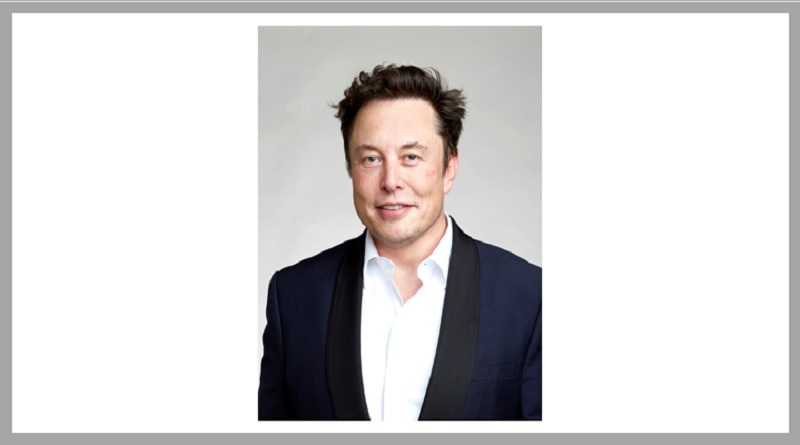Shirofune Enhances Shopify Integration with Google Analytics 4’s Data-Driven Attribution Model
Musk Discusses His Views on Content Moderation as Twitter Deal Inches Closer to Completion

So what’s the latest on Elon’s great Twitter shake-up?
While we’re still waiting for Elon Musk’s Twitter takeover bid to be finalized, Musk has been slowly doling out more details of his Twitter reinvigoration plan, which he believes will see the app grow its user count by 200% over the next three years, and bring in 5x more revenue by 2028.
This seems ridiculously optimistic by any measure – but given Musk’s track record with his other companies, no one’s dismissing his plans outright, as maybe he sees something we don’t, and there is a pathway to making Twitter a more essential element of people’s everyday lives.
Though from what Elon’s outlining thus far, that pathway’s not exactly clear just yet.
Today, in an interview at the Financial Times ‘Future of the Car’ conference, Musk provided some new notes on his Twitter plans, including:
Musk feels that Twitter has a strong left bias because it’s based in San Francisco. Musk’s view is that many Twitter employees would not even realize this bias due to where they’re located
Musk reiterated his plans to open-source Twitter’s feed algorithm, saying that, if he can, he would ’ put the Twitter algorithm on GitHub and say like, ’Hey, anyone wants to suggest changes to this? Please go ahead’
Musk indicated that, based on the evidence that he’s seen, he would likely restore former President Donald Trump’s banned account, as permanent bans, in his view, are not effective in the vast majority of cases
The last point is what most are latching onto – ever since the Tesla owner announced his plans to buy Twitter, right-wing pundits have been trumpeting the deal as a win for free speech, and a restoration of their capability to say what they want on the social media platform, free from perceived bias and enforcement aligned with a political perspective.
Twitter itself has been working for years to establish a fair and reasonable process for the enforcement of its rules, but in Musk’s view, the banning of Trump was an over-reach, which Musk says, former Twitter CEO Jack Dorsey agrees with.
In response, Dorsey explained his perspective on the Trump ban:
As you can see, Dorsey had reservations about the decision at the time, and Musk’s view aligns with these concerns. Whether it was the right move or not, the decision to ban Trump has become a ‘line in the sand’ moment, and it will likely be a major point of contention in marking the Elon Musk era at the app if indeed Musk does move to undo Trump’s ban once he takes ownership of the company (which is still to be confirmed).
Though Trump says that he’s not coming back anyway. The former President is dedicated to building his social network, Truth Social, which, if it’s successful, could end up making him a lot of money, while also allowing any type of speech that it chooses.
But it’s also hard to imagine that Trump is overly happy speaking to a much smaller audience. Here’s a visual representation of the engagement on Truth Social as it stands right now.
Trump had close to 90 million followers on Twitter when his account was banned, which gave him a huge platform to spread his political messages, while virtually every one of his tweets sparked a new news cycle of its own.
If Musk does reverse Trump’s ban, despite his comments to the contrary, I’m tipping that Trump will be back, which will kick off a new season of ‘Will They Ban Him?’, as he resumes his late-night practice of poking his various enemies and critics via his short missives.
The Trump issue aside, Musk’s expanded comments on content moderation in today’s interview do seem a little concerning, in that outside of these larger, more high profile cases, there does seem to be a level of naivety to his understanding of adequate platform moderation.
If [Twitter users] say something illegal or otherwise just destructive to the world, then there should be perhaps a timeout, a temporary suspension, or that particular tweet should be made invisible or have very limited traction. I think if there are tweets that are wrong and bad, those should be either deleted or made invisible, and a suspension, a temporary suspension is appropriate but not a permanent ban.”
Elon Musk, CEO of Tesla Motors
‘Wrong and bad’ is pretty vague, and while I’m sure that Musk has a stronger grasp on the real issues at play than what this statement would suggest, it does seem that he has a way to go in fully understanding the potential harms and dangers of allowing certain types of speech to be amplified via social networks.
In any event, Musk does advocate a form of moderation here, in policing the most harmful types of content. Musk has previously noted that he will align with the laws of each region, in determining what will and won’t be allowed in the app, while he also recently met with Thierry Breton, the European Commissioner for Internal Markets to discuss the EU plans for content moderation.
So Musk, according to his statements thus far, will look to ensure that Twitter adheres to evolving content laws, in all regions. Which makes sense, and seems like a more ‘hands-off approach to such issues. But ultimately, that could see Musk’s free speech stance diluted, at least in the eyes of the more extreme elements who are welcoming the Musk era with open arms.
The Trump issue also clouds a bigger question around the potential for tweet censorship under Musk’s leadership – how will the platform deal with requests from the Chinese Government to remove content.
Musk’s main earner, Tesla, is reliant on Chinese manufacturing, with the vast majority of Tesla components manufactured in China. Indeed, Tesla sold more than 70k China-made vehicles in December alone, it’s highest monthly rate since it started manufacturing in Shanghai in 2019, while almost half of the total 936k cars that the company shipped last year were manufactured in the region.
Tesla itself may be US-owned, but China is crucial to its development and growth, and with Twitter currently banned in China, and regularly the focus of pro-CCP propaganda campaigns, it’ll be interesting to see how Musk manages this element as he looks to implement his free speech approach.
As noted, more recently, Musk clarified this stance, noting that Twitter will be beholden to the laws of each region.
But those guidelines could still prove problematic, because China, India, and more recently Russia have sought to quell anti-government sentiment by restricting what’s shared online.
From one perspective, you could say that China’s efforts to block certain topics are aligned with the laws of that region. Does that mean that the CCP should be allowed to simply erase such mentions from an entire platform if it chooses – no matter what, exactly those topics maybe? Should Russia be able to call on Twitter to delete mentions of its invasion of Ukraine?
And within this, where does ‘freedom of speech begin and end?
And all of this aside, none of Musk’s views on free speech will help the platform stimulate user growth.
How will Twitter triple its user base in three years? Most people that can access Twitter are already well aware of what the platform is and how it works, and they’re either using it or they’re not.
How will Musk convince those who’ve shown no interest in the past to sign up?
There’s still a way to go in understanding the next phase of Musk’s plan, and many elements that need to be considered, in all aspects, before we get some perspective on what, exactly, Twitter will become in its next stage.




